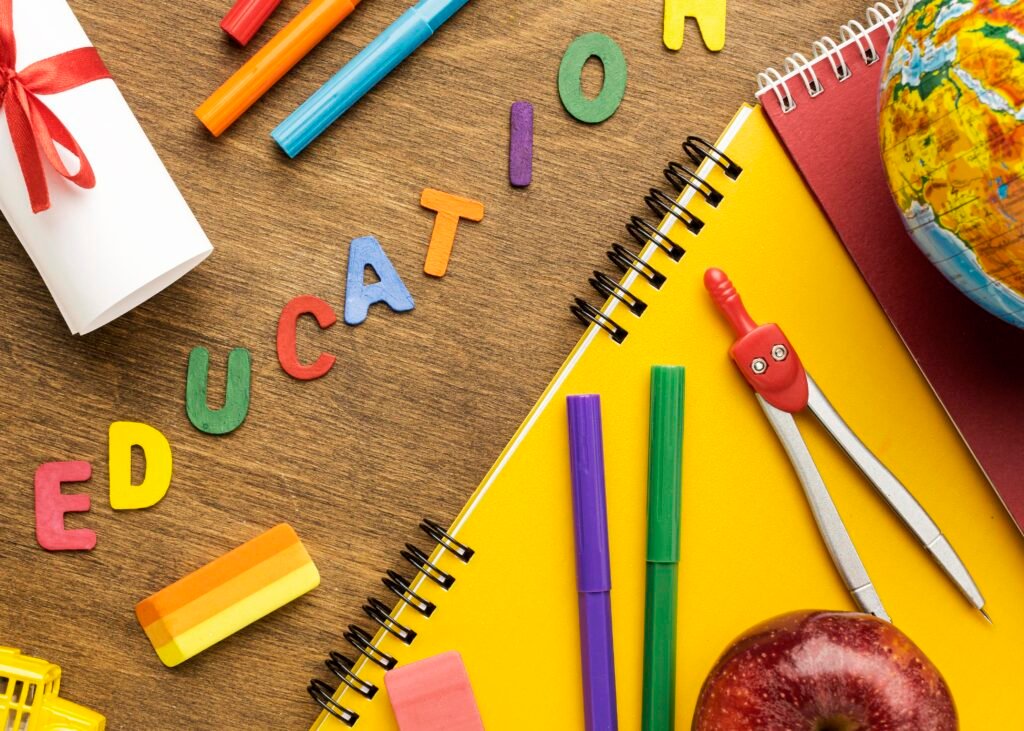My growth as a teacher thus far has included a burgeoning confidence leading a class. I feel that my classroom management style has improved, and I’ve learned several strategies for maintaining control in a respectful way that ensures I am leading the class (and not allowing student chaos to lead). I also feel that I have grown in my comfortableness with reading and applying standards. Initially the standards could seem daunting, but the more I worked with developing lesson objectives and lesson plans, the more comfortable I became with unpacking standards and crafting content around them. A third area that I feel I have grown is using assessment data to drive future lessons. I have seen first-hand how thoughtfully designed assessments can provide insight into student thinking and ensure all students meet my previously stated goal of lesson objective comprehension. The data gives me a place to work from to reflect on what went well, what can be done better, and where to start going forward.

Image by Freepik.com
Developing Knowledge of the Subject Matter
One professional development activity that helped deepen my knowledge of subject matter with regards to math, reading, and writing is the Khan Academy courses I took to prepare for the Praxis Basic Skills exam. Since this was a required exam for certification in my state, I took preparation seriously and committed to a regular study plan. I found the Khan Academy materials were so helpful to strengthening my grasp on those subjects because the online program uses a targeted learning plan that is tailored to skip what you know and strengthen the areas that are not mastered. It provided clear video tutorials, tons of practice problems, and real-time instant feedback on incorrect answers with an explanation for why. I plan to check Khan Academy materials in the future if there is ever another subject in which I need to strengthen my content knowledge.
Pedagogy Knowledge
One specific professional development activity that helped deepen my pedagogy knowledge is a verbal interview with a veteran educator who had over 15 years of experience as a third grade teacher. This interview was a requirement for one of my prior classes with WGU, and it proved to be so beneficial. The teacher I interviewed provided so much advice on what to expect as a new teacher and what to look for. She helped explain how standards drive the curriculum and how assessments give data that can be used to strengthen my strategies. The same teacher was also available to me as an informal resource who I relied on for several professional conversations during my demonstration teaching time. I often asked for her opinion on my lesson plans, and she acted as a mentor to me. For a specific example of how she helped me, one time when I was planning a reading lesson she recommended that I also link it to a current social studies theme for a cross curricula lesson plan. She also recommended lesson planning resources such as the Teacher Pay Teacher website for ideas and materials. My mentor teacher also helped me think about differentiation options, such as offering a choice of manipulatives when solving math problems like ten frames, counters, or stacking cubes.
Collaborating with Grade-Level Teams
A specific example of collaborating with grade-level teams to analyze student data is the meeting I attended to discuss last year’s standardized testing scores. This gave me a good opportunity to listen to how an administrator gives feedback and goals to the grade level staff. We went over the student data in various categories to determine what was working well and what needed to improve. The main thing discussed was that last year’s group of 1st grade students struggled with the listening portion of the assessment.
During the meeting, the first grade team created an action plan. We talked about incorporating more listening based activities into the curriculum. One activity the teachers decided on was a chameleon coloring activity where the teacher read prompts that matched a worksheet featuring several chameleons in different locations. The prompts were things like color the chameleon under the bridge yellow. This activity’s goal was to strengthen the students’ listening skills because they had to pay attention to know which chameleon was which color. It also tested the students’ knowledge of color, direction, and prepositions which was great for a beginning of the year activity to see what was retained from kindergarten.
Another example of an activity we used to strengthen listening skills also targeted the curriculum learning goals. This was a socials studies assessment on reading maps. For the assessment, the students were given a map with landmarks and the teacher dictated the instructions. They had to listen for verbal prompts such as locate the building that is north of the park.
My future instruction was influenced by the grade level meeting by helping me be more intentional about incorporating non-curriculum skills such as listening into my lesson plans while also targeting the curriculum standards and goals. I included activities that required active listening in my lesson plans. For example, a lesson plan on proper nouns included a Kahoot game that required narration to determine if a noun was proper or common. If the words had been written on the game slides, capitalization would have been a clue that the noun was proper. I didn’t want students to rely on looking for capitalization only, so they had to listen to the verbal description, such as girl or Winn-Dixie, in order to determine if the noun was proper. I also used verbal multi-step directions when providing information on transitions. For example, I might have said, “Put your supplies in your pencil box, stand and push in your chair, and then find your seat on the carpet.”
The collaboration on student data helped me grow as an educator because I could see in action how data should be used to determine which areas need extra attention while lesson planning or crafting assessments. It helped my growth to consider how to be more deliberate with setting goals that can be tracked and measured. Utilizing specific listening activities in my lesson plans allowed me to informally and formally assess the students’ growth in that area. So it helped me as a teacher to be mindful of that when planning lessons, and how multiple learning goals can be stacked in one lesson.

Professional Organization
One professional organization that contributed to my growth as an educator is The Association for Supervision and Curriculum Development (ASCD), which publishes the magazine EL. This magazine on educational leadership has articles about research, practice, and policy in the field of education. I was introduced to this organization through my course curriculum for Communities of Care class. The article Learning Character from Character from their October 2018 issue helped me learn about social emotional learning. I had never heard this concept before, but SEL learning has really resonated with me as something I want to incorporate into my daily classroom. SEL learning can help meet students’ needs for care and prime them for a better educational experience.
Goal for Future Growth
One specific goal for how I want to grow as an educator is too incorporate more reading into cross curricular lessons. I feel that reading skills are the foundation for all other disciplines, and if my students can become strong readers it will help them across all other areas. This goal could be achieved by using relevant literature and non-fiction books as part of my lesson planning for other subjects such as social studies or science. I could visit the library to look for material that will complement and enhance my lessons, rather than just using a provided textbook. I was able to apply this thinking to a unit I worked on with my host teacher. The science lesson was on animal habitats. In addition to using the provided textbook, we incorporated many other nonfiction books with partner reads, group read alouds, or individual study. Using the additional books helped the students learn more about animals and their habitats, and they were also engaged because the books were fun and captivating with interesting facts and tons of pictures.
Professional Growth Activity
A professional growth activity that I could participate in to reach my goal is reading articles on how to use literature and nonfiction books in the classroom. There are many curated lists that offer suggestions on award-winning literature and how they can be linked to lesson planning. An additional professional growth activity could be professional conversations with veteran teachers and colleagues on what books are must-use for their classrooms and why. Additionally, there might be workshops I could attend that make recommendations on literature use in the classroom.


